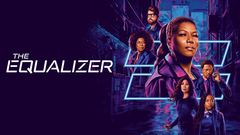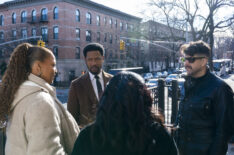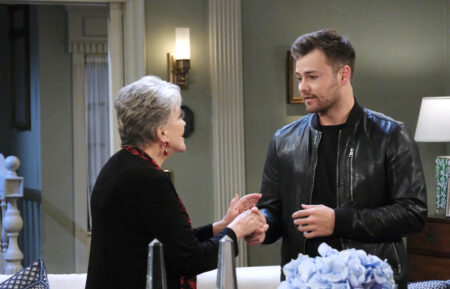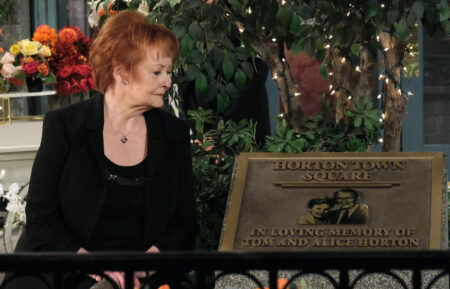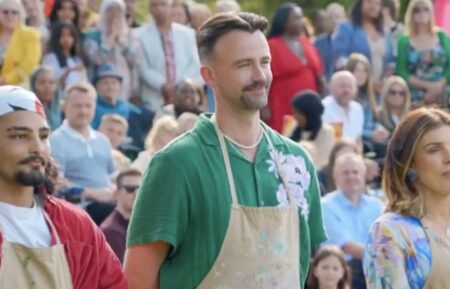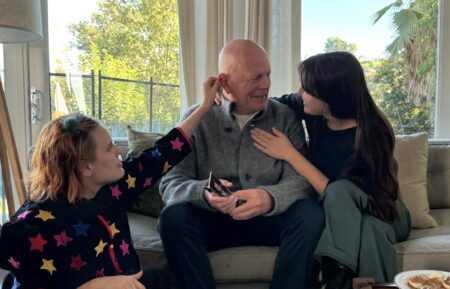‘The Equalizer’ Team on Including the Mourner’s Kaddish & What Harry Learns About His Mom
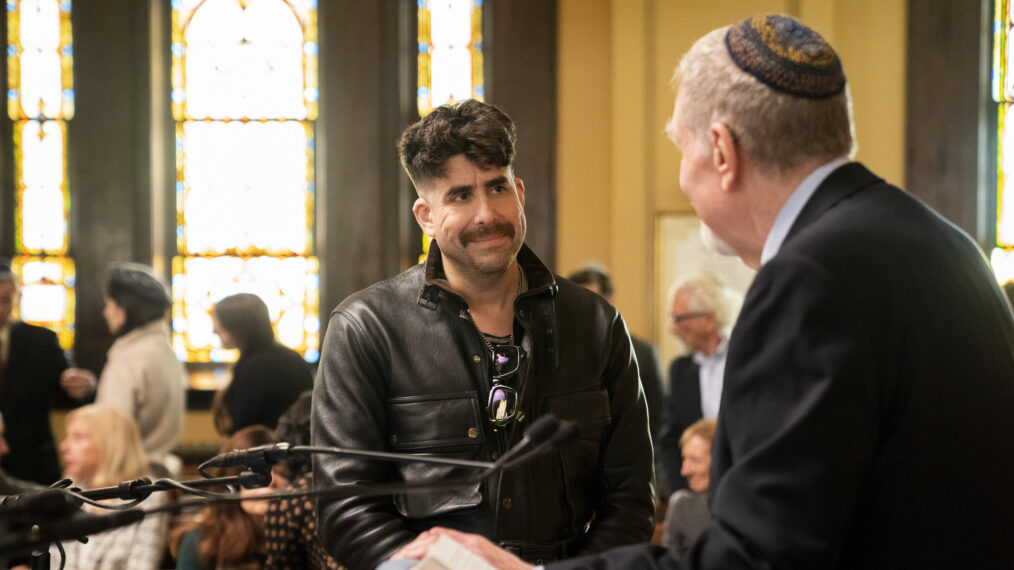
Spoiler Alert
[Warning: The below contains MAJOR spoilers for The Equalizer Season 3 Episode 11, “Never Again.”]
Anti-Semitic hate crimes terrorizing a local community bring Harry (Adam Goldberg) to his old neighborhood on The Equalizer, and not only does he lead the charge in stopping the hate group responsible, but he also learns something key about his own past in the process.
It’s through a rabbi (Saul Rubinek) from the neighborhood that Harry learns the whole story about his mother’s absence from his life. (She had a good heart, the rabbi says.) Though Harry’s initially confused as to why the rabbi keeps talking about her like a perfect specimen when, for him, she abandoned him and didn’t fight for him when she and his dad split up, there’s more he doesn’t know until the end of the episode.
As Harry learns, his mother suffered from horrible bouts of depression, and while coming to synagogue helped, she felt she couldn’t help her son, so she set him free so he could thrive. She made his dad swear not to tell him because she was ashamed. His dad loved his mom very much but didn’t know how to help her either. Mental illness wasn’t discussed much back then (and still isn’t). And so the episode ends with Harry honoring his late mother (like she had for his grandmother) to make sure their memory lives on, with a candle burning bright, with the Mourner’s Kaddish. “This is for you, mom,” Harry says, with Mel (Liza Lapira) at his side.
For Goldberg, who’s used to disseminating information in his role on The Equalizer (which “has kept me very intellectually facile,” he says), he went deep for that scene. “This kind of acting is the reason why you become an actor,” he tells TV Insider. “It’s to explore these different sides of yourself and emotions inside of yourself. And it becomes, frankly, therapeutic. I think any actor would be disingenuous to say otherwise.”
He continues, “so, by the end of the show, when I’m saying this Mourner’s Kaddish, I found myself kind of really struck. I really went kind of deep and let myself just go there. My mother and father are still very much with me, [so] it was more about this idea of just really allowing oneself to get in touch with a part of themselves that maybe they disavowed. And in my case, in some ways, it is this sort of deep history of oppression, frankly.”
The ending was something that co-showrunner Adam Glass had in his head from the beginning, so building to that “was a really fun process of discovery, what had actually happened, even though it’s heartbreaking, with Harry and his mom,” Ora Yashar (who co-wrote the episode with Glass) shares. “We had a lot of discussions around that: what Harry’s pain really is and where that comes from and how that developed and how that’s influenced him. It really has had a lot of influence in who he’s become.”
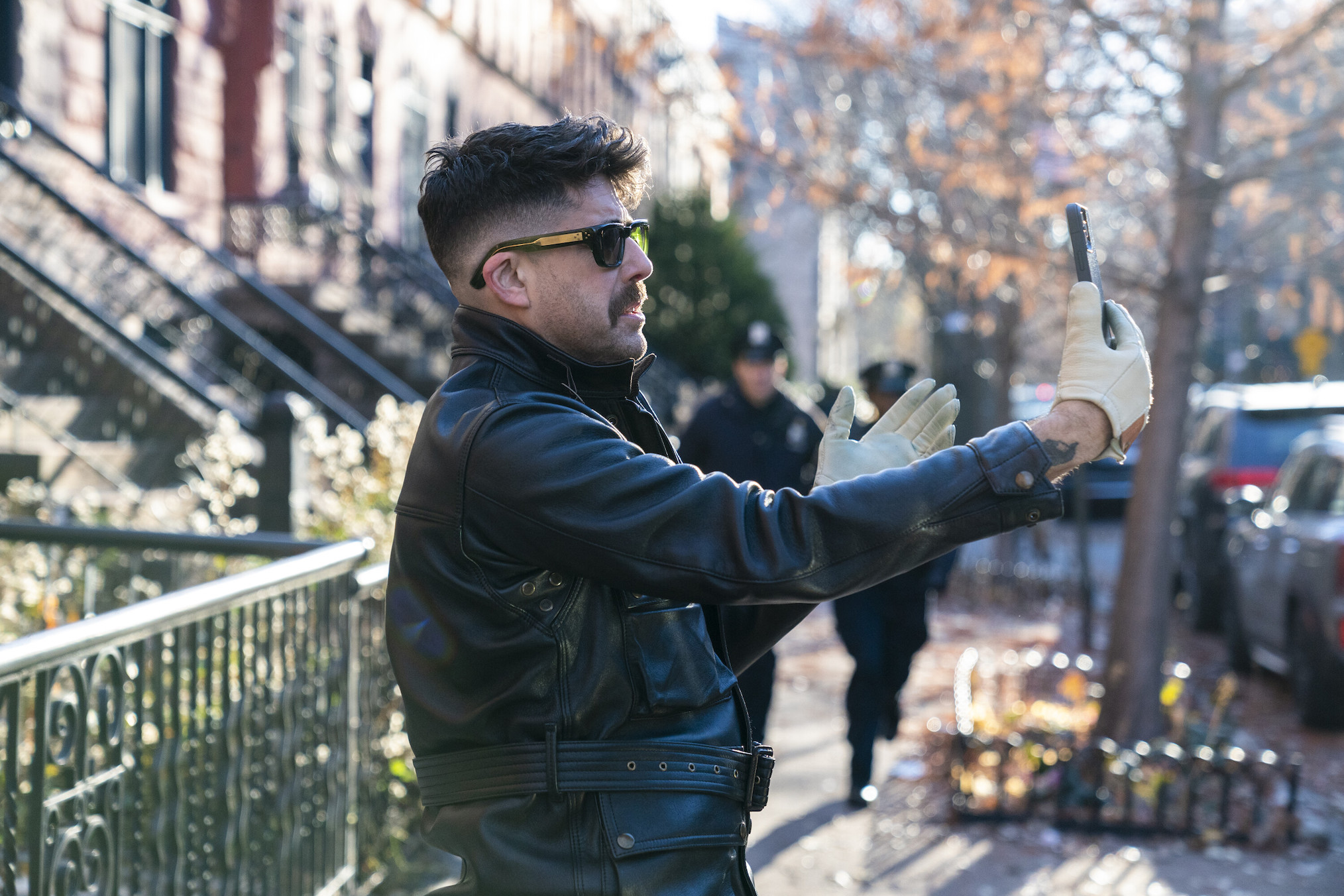
Michael Greenberg/CBS
Adds Glass, “I know I do this a lot — may it be on Supernatural or Criminal Minds or Cold Case, shows I’ve worked on — [and] I think good writers put a little bit of themselves into things. So even though I’ve always been proud of my heritage and who I am, I’m not going to lie, I brought my own mom issues into this. My mom passed away a year ago, and I had to light the candle for her, and it was much more emotional than I thought.”
According to the co-showrunner, Goldberg “really wanted to ground it in reality and that he didn’t know it that well and he was struggling with it. And I thought he did such a great job of selling it. But also what was really beautiful about it was him explaining to Mel why we do it. I think a lot of people don’t understand our traditions. The way to remember is through the light, through the candle, and through saying this prayer. It’s always so beautiful.”
In fact, usually, it’s a different prayer while lighting the candle, Glass explains, “but we talked to the rabbi, and the rabbi said, because Harry isn’t a traditional Jew, we could do it. So yeah, there’s a lot that went into it and I’m glad it landed because when we watched the playback, we both, I think, choked up a little. We said, ‘oh good, we got it there. That’s where we wanted to get to.'”
Now that Harry has this new information about his mother, Goldberg would love to explore more about his personal life, “whether it’s his dad, whether it’s his other side of the family, whether it’s that old neighborhood.” And moving ahead after this episode, “it sort of anchored me in a way that I hadn’t had before,” he says. “Because prior to that, I don’t think any of us had fully fleshed out exactly who this guy was. And it really gave me a lot more to work with.”
But don’t expect to see Harry change too much. “He is who he is,” Glass points out. (He also reveals that they cut a joke after Harry’s line that knowing the information sooner could’ve saved him money in therapy, with Mel adding, “oh, if it was only just that.”) “It’s just one more piece that he has figured out of his life like we all do. You figure out pieces as you move forward. It’s not going to change who Harry is. It just might have lifted a bit of a heavy burden that was on his chest.” And he might be more willing to talk about his past than he has been thus far.
The episode also gives us the most intense Harry and Dante (Tory Kittles) scene yet, with the detective intervening when the other man comes face-to-face with one of the members of the hate group in the precinct. “When I first read it, I was like, ‘hey man, we got to do a bunch of scenes.’ And then I realized that it wasn’t a bunch, it was only a couple, but it felt like a bunch just ’cause we had never really worked together. It’s fun. He’s great. I love Tory,” Goldberg shares.
“That day was very surprising. I didn’t know it was going to go there, the day in the precinct,” he admits. “It’s one of those things where sometimes you don’t know until you get there. I kind of didn’t know he was going to go there. I haven’t seen it, so I don’t exactly know how it’s cut and what takes they use, but s**t got real.”
Yashar hopes viewers leave the episode knowing, “we all have to come together in the face of hate. We can’t be divided. This is something that we need to tackle head-on together. That’s the only way, and it’s the work of a lifetime at the end of the day. I don’t think there’s necessarily any end to the work that we have to do, but it’s really important that we come together to do it. It’s the only way.”
Glass echoes that sentiment: “Our show is a metaphor. If you come from a marginalized group of people, it doesn’t matter who’s being attacked, we’re all being attacked, and we all have to turn around and fight back for it.”
The Equalizer, Sundays, 8/7c, CBS
